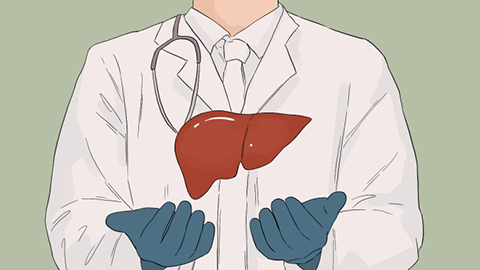What does it mean if the level of alanine aminotransferase (ALT) is high?
Generally, elevated levels of alanine aminotransferase (ALT) may be related to intense physical exercise, dietary factors, fatty liver disease, alcoholic liver disease, viral hepatitis, and other causes. It is recommended to seek timely medical consultation and, under a doctor's guidance, undergo general treatment, medication therapy, and other treatments. Detailed analysis is as follows:

1. Intense Physical Exercise
After intense physical activity, the permeability of liver cell membranes increases, which may cause ALT to be released from liver cells into the bloodstream, temporarily elevating ALT levels. It is recommended to reasonably plan exercise intensity and duration to avoid excessive physical exertion.
2. Dietary Factors
Consumption of excessive high-fat and high-protein foods or alcohol may increase the burden on the liver, leading to elevated ALT levels. It is recommended to maintain a light diet and reduce intake of high-fat and high-protein foods.
3. Fatty Liver Disease
Fatty liver disease is usually caused by long-term alcohol consumption, obesity, and other factors. Excessive fat accumulation within liver cells causes liver cell damage, resulting in the release of ALT into the bloodstream and elevated serum ALT levels. This condition is typically accompanied by symptoms such as pain in the liver area, fatigue, and loss of appetite. Follow medical advice to treat with medications such as simvastatin tablets, atorvastatin calcium tablets, and polyene phosphatidylcholine capsules.
4. Alcoholic Liver Disease
Alcoholic hepatitis is generally caused by long-term excessive alcohol consumption. Acetaldehyde, a byproduct of alcohol metabolism, has direct toxic effects on liver cells, causing liver cell damage and elevated ALT levels. Symptoms may include pain in the liver area, jaundice, and ascites. Follow medical advice to treat with medications such as reduced glutathione for injection, compound glycyrrhizinic acid injection, and potassium chloride injection.
5. Viral Hepatitis
Viral hepatitis is usually caused by viral infections. Hepatitis viruses infect liver cells, triggering inflammatory responses and resulting in liver cell damage and the release of ALT into the bloodstream. Symptoms may also include pain in the liver area, jaundice, and spider angiomas. Under a doctor's recommendation, medications such as entecavir dispersible tablets, tenofovir disoproxil fumarate tablets, and diammonium glycyrrhizinate injection may be used for treatment.
It is recommended to maintain healthy lifestyle habits, quit smoking and drinking alcohol, consume light and nutritious foods, and reduce intake of irritating foods to help maintain overall health.




